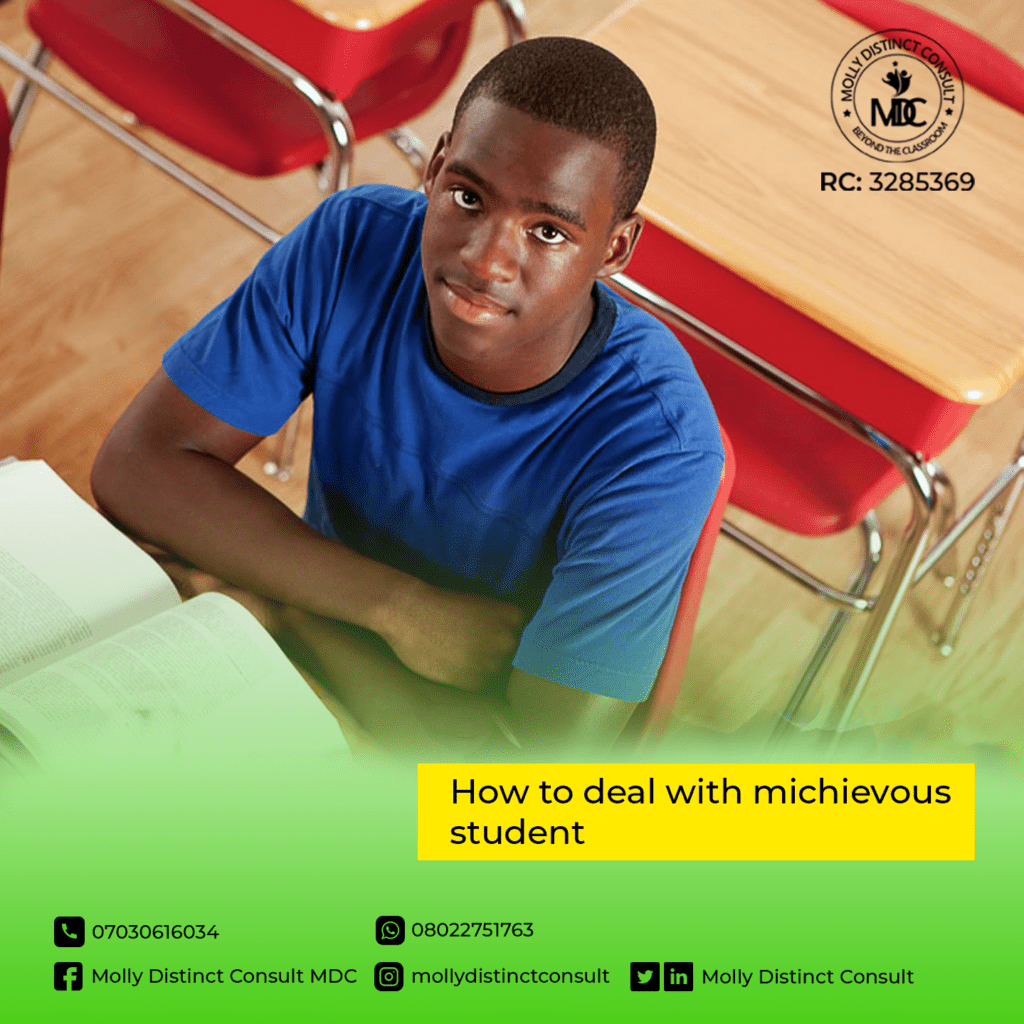
How to deal with mischievous students
How to deal with mischievous students
“Loki was trying to look serious, but even so, he was smiling at the corners of his mouth. It was not a reassuring smile.”
Norse Mythology
Written by Neil Gaiman
Many teachers sometimes wish that some of their students don’t attend school regularly because they know everything would go as planned any day they are absent. Unfortunately, this category of students almost never miss school or run out of naughty ideas to impress their peers and frustrate their teachers. Mischievous students might be the nightmares of many teachers but they can be handled properly if the right strategies are put in place. Here are some effective ways to manage mischievous students in your classroom.
Keep them busy
The last thing you want to allow a mischievous student is a moment of idleness, especially during your lesson. You might feel a minute is inconsequential because the time frame is infinitesimal to achieve any meaningful mischief but the truth is, a few seconds is enough for a naughty student to distract others, create a problem for you, or execute another initially planned activity. You can make him/her lead a conversation in class or a group activity, or serve as your watchdog in your absence, or any other common task. As long as he or she is engaged, then you are be saved momentarily.
Isolate them
Without their spectators or supporters, mischievous students are virtually powerless. Think of these kids as comedians, if you take away their stage and audience then their jokes are simply regarded as noise and definitely unappreciated. So, find ways to isolate them, such as, placing them on detention or giving them a private activity. You can also make them stand behind other students in class so that they can only be a distraction to themselves but do not ever send them out of the classroom. Of course, you can’t account for their actions in a circumstance where they are unsupervised.
Read Also
How to handle rich rude students as a teacher
Control yourself
Students know when their teachers are upset or baffled. Actually, the aim of mischievous students is to either upset their teacher in order to spark an irrational behaviour or to confuse them enough to gain the attention of others. When you demonstrate self-control, you send a message to the students that you are in charge – not them. Plus, when their tantrums, pranks, or jokes do not yield tangible success then they would most likely abandon such acts, at least temporarily. Now this does not mean overlooking student’s misconduct in the classroom, but it should be seen as tolerance that helps you to pick your battles and maturity that keeps you unchallenged by naughtiness.
You might like
Avoid burnout as a teacher with these easy strategies
If you would like more ideas and classroom practices that can help you understand your students, manage their varying habits, and enjoy a stress free effective teaching time, then you should reach out to Molly Distinct Consult.